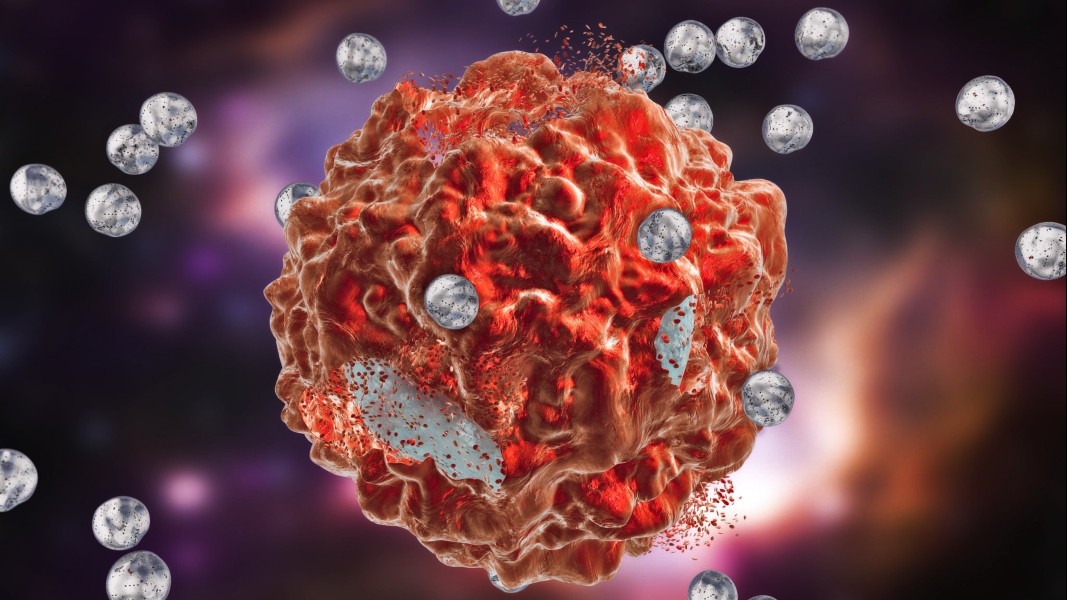The use of nanoparticles in medicine is a relatively new practice. The day is not far off when the much-sought-after drug will appear on the market, which will precisely destroy cancer cells without damaging the healthy tissue. Nanotechnologies that purify from pollutants, such as antibiotics, hormones and pesticides, are also starting to find application.
The scientific work of the young Bulgarian chemist Dr. Ivalina Trendafilova * are also focused in this field. Her efforts are used in the diagnosis and treatment of various diseases. For example, in addition to being able to detect newly formed cancer cells, nanoparticles can be designed to bind the chemotherapeutic agents directly to them.
"We know that chemotherapy substances damage not only tumor cells, but also healthy cells," Ivalina explains. "By incorporating drugs into these carriers that I synthesize, we can get to the tumor or infected tissue and release the drug there without poisoning the whole body, which is an extremely great advantage.”

Nanotechnologies can also improve the solubility of biologically active substances of natural origin and thus allow the delivery of the active substance to the desired organ or tissue.
Used as catalysts in the decomposition reactions of pollutants, nanoparticles can also be used as a purifying agent:
"These are usually oxidative reactions that treat wastewater from various industries. The harmful substances in it are in very small concentrations, which are considered admissible. This leads to their re-release in nature. In recent years, however, research has shown that their accumulation in soils and water basins causes serious problems, These organic pollutants affect the reproduction and populations of species. The systems I am developing are in this direction - purification from micro-pollutants, with the aim of their complete decomposition into water and carbon dioxide, or at least into substances which could not harm as much as the original substances."

Due to her diligence and dedication to science, Ivalina Trendafilova has won the most prestigious scholarship in the field of science, under the “Maria Sklodowska – Curie” programme (MSCA). The program is held at the University of Namur, Belgium, where she will continue her research. After she gathers more experience and knowledge, she is planning to return to Bulgaria and pass them on to her colleagues. Her dream is to contribute to the development of science in Bulgaria at the world level:
"When something is close to your heart and you know that this is your vocation and passion - you do your best and move on. I still keep saying that I want to develop in science. It excites me, makes me face new challenges every day, it makes me think, read, and solve problems. I want to stay in science. Waking up with a desire to work is an advantage that few people have.
* Ivalina Trendafilova is a senior reseach assistant and doctor at the Institute of Organic Chemistry with a center in phytochemistry at the Bulgarian Academy of Sciences, Sofia.
She is the author of dozens of scientific publications in the field of nanosciences and nanotechnologies.
Manager of projects for the development of new nanocomposite systems and new supply systems for bioflavonoids.
Winner of awards and distinctions, including the Young Scientist Award "Prof. Marin Drinov ”, scientific direction“ Nanosciences, new materials and technologies”, Sofia, Bulgaria, 2019.
In 2020 she was among the six nominees for the National Award for Young Talent in Art and Science of the "13 Centuries of Bulgaria” National Endowment Fund.
English: Rossitsa Petcova
Photos: fund13veka.bg, archive
Radmila Sekerinska from North Macedonia appointed NATO Deputy Secretary General NATO Secretary General Mark Rutte has appointed Radmila Sekerinska from North Macedonia as the next NATO Deputy Secretary General. “I am happy to announce..
The traditional Bulgarian Christmas picnic, organized by the Bulgarian Cultural and Social Association "Rodina - Sydney" and the Bulgarian School "Dr. Petar Beron", will take place on December 8 , 2024 in St. Leonards Park in Sydney. "We have..
The Bulgarian national minority in Albania is one of the largest in the country, according to data from the latest official population census. A total of 7,057 individuals identified as Bulgarians. For comparison, 23,000 people identified as Greeks,..
Who said Bulgarians were grumpy pessimists? Take a stroll through Sofia's Christmas bazaars and meet the cheerful crowd. The festive decorations, music,..

+359 2 9336 661
